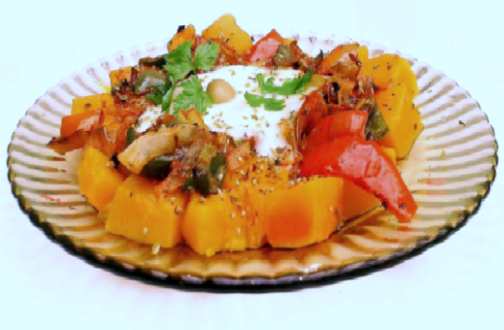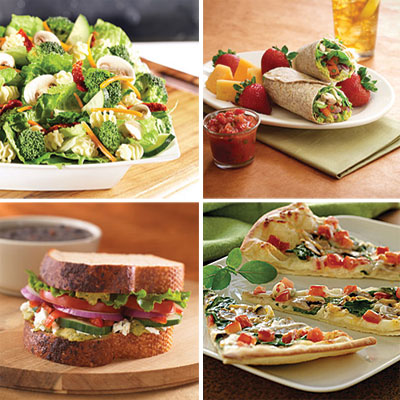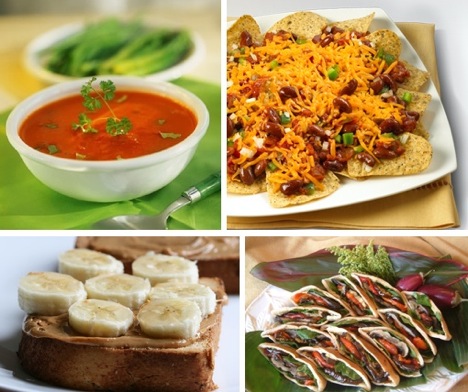The 100 Calorie Secret is Turning The Diet Industry Upside Down. A Weight Loss Doctor Finally Reveals the Secret of How to Lose Weight Without Dieting Ever Again Lose 10, 20, 30 and More Pounds Right Now!
Watch Dr. Lipman on CBS-TV
Diplomat of American Board of Internal Medicine
Endocrinology & Metabolic Disorders
305-670 3259
Richard L. Lipman M.D:
Board certified in Internal Medicine,
Endocrinologist & Weight Loss Expert, Dr Lipman has treated thousands
of overweight patients office for 25 years. Located near, South Miami Hospital, Dr Lipman has authored
30 original medical reports & is on the staff of local hospitals.
Weight Loss for Vegans: Does Not Have to Be So Difficult
Whether vegans are more healthy than meat eaters is not the issue in this discussion. No doubt, overall they are less overweight with lower blood pressures, triglycerides and cholesterol than meat eaters. Whether they live longer has not been proven. A 2003 study of British vegetarians, including vegans found similar mortality rates between "vegetarians" and other groups. The best weight loss might be a little more balance foods.
A 1999 meta-study of five studies comparing vegetarian and non-vegetarian mortality rates in western countries found the mortality rate to be highest among vegans and those who eat meat regularly followed by vegetarians and those who eat meat infrequently. The lowest mortality rate was demonstrated by those who eat fish, but no other meat. So I leave it to others to decide if vegan-ism will prolong life. The answer certainly is not in. My feeling (unproven, of course) is that man evolved eating meat and meat products and the true vegans I have seen seem to be missing something. They are not the really skinny people.
Despite all of the low calorie foods, obesity does exist in the vegan population. Few weight loss diets have been tailored for vegans. Although not a vegan diet, Weight Watchers can be adapted to the vegan lifestyle. Since the emphasis is on fruits and vegetables with low points, there is a lot of food. However it really is not the best choice.
Fruits –5 a day: apples, peaches, all berries, pears, oranges, grapefruits, tangerines, cantaloupes, nectarines, (limes and lemons are free). Berries portions are ½ cup.
Seasonings: unlimited – lemon, garlic, thyme, parsley, plum vinegar, apple cider vinegar, sea salt, basil, pepper, balsamic vinegar, garlic salt
Vegetables: unlimited – spinach, lettuce, cucumbers, cabbage, tomatoes, asparagus, onions, celery, broccoli, radishes, kale, Brussels sprouts, green beans, mushrooms, peppers, zucchini, cauliflower, dill pickles, bean sprouts, beets, squash, egg plant, bok choy, pumpkin
Teas and beverages: diet sodas, green tea, black tea, carbonated water, coffee, tea, crystal light, Diet V-8 Splash, Lactose free soy milk or Almond milk permissible in small quantities, PowerAde Zero (like Gatorade with no sugar )
Salad dressings: Wishbone or Ken’s spray dressing, Walden Farms No Calorie-No Fat-No sugar dressing, NO OLIVE OIL
Condiments and Additives:, Equal, Splenda, Stevia, Heinz reduced sugar Ketchup, soy, Tabasco, Picante, horseradish, PAM and other no calorie aerosol based cooking sprays, pickles, olives, sugar free salsa, soy mayonnaise
Noodles: Miracle noodles, Shirataki noodles (usually found in produce section of supermarket since must be kept cold)
Crackers: (3 a day) Melba toasts, Grisoni bread sticks, Wasa, Finn, Gilda toasts, Flatout Light wrap (a no sugar, no fat, high protein wrap), La Tortilla Factory Low Carb
Snacks: Soy Crisp Chips, Walden Farms Spreads, Sugar free popsicles, Hummus (watch amount of olive oil, Weight Watchers has a low calorie, low olive oil recipe) , vegetarian cheese
Protein Products for Vegans and Vegetarians:
This is the food group where the standard HCG diet differs from those who follow vegan or vegetarian eating principles:
Vegetarian Boca Burger Products:
All-American Flame Grilled
The All-American Flame Grilled Boca Burger contains 120 calories, 45 of which are calories from fat. There is 5 g of total fat, 1.5 g of which is saturated fat. It contains 5 mg of cholesterol, 380 mg of sodium, 6 g of carbohydrates, 5 of which comes from fiber and 14 g of protein. In addition, this burger patty provides 15 percent of the recommended daily value of calcium and 10 percent of the recommended daily value of iron.
Original Vegan
The Original Vegan Boca Burger contains 70 calories, 5 of which are calories from fat. There is 0.5 g of total fat, none of which is saturated fat. It contains no cholesterol, 260 mg of sodium, 6 g of carbohydrates, 4 of which comes from fiber and 13 g of protein. In addition, this burger patty provides 6 percent of the recommended daily value of calcium and 10 percent of the recommended daily value of iron.
Grilled Vegetable
The Grilled Vegetable Boca Burger contains 80 calories, 10 of which are calories from fat. It contains no cholesterol, 300 mg of sodium, 7 g of carbohydrates, 4 of which comes from fiber and 12 g of protein. In addition, this burger patty provides 6 percent of the recommended daily value of calcium and 10 percent of the recommended daily value of iron.
Textured Vegetable Protein(TVP)
TVP is made from 50% soy protein soy flour or concentrate, but can also be made from cotton seeds, wheat, and oats. It is produced from soy flour after the soybean oil has been extracted, then cooked under pressure, extruded, and dried. TVP® has a long shelf life if stored properly and is an excellent source of protein and fiber. It is made into chips, flakes or chunks. TVP® contains absolutely no meat or meat byproducts — so those who are on strict vegetarian diet it is a great product. TVP can be purchased flavored with beef, chicken, sausage and ham. One half cup dry TVP= 80 calorie, 0 fat, 3 g sugar, 13 grams protein, total carbs = 7
Tofu and Related Products:
First used in China around 200 B.C., tofu has long been a staple of Asian cuisine. Tofu soaks up flavors and is best when marinated for at least 30 minutes or served with a flavorful sauce. There are two types of tofu that you’ll want to try: fresh, water-packed tofu (always refrigerated) for when you want the tofu to hold its shape, such as when baking or grilling, and silken tofu, which is packed in aseptic boxes and usually not refrigerated.. Try firm or extra-firm tofu for baking, grilling, sauteing, and frying and soft or silken tofu for creamy sauces, desserts, and dressings. To give tofu a meatier texture, try freezing it for two to 24 hours and then defrosting it. Press the water out of the tofu prior to preparing it. Wrap the tofu in a towel and set something heavy on top of it for at least 20 minutes, and it will be ready for marinades, sauces, freezing, and cooking.
You may have tried tofu and soy milk before, but what about edamame, soy ice cream, soy yogurt, soy nuts or soy cheese? TVP and tempeh are also protein-rich soy foods. As an added bonus, many brands of tofu and soy milk are fortified with other nutrients that vegetarians and vegans need, such as calcium, iron and vitamin B12. Protein content: A half-cup of tofu contains 10 grams, and soy milk contains 7 grams of protein per cup.
Tempeh
This traditional Indonesian food is made from fermented soybeans and other grains. Unlike tofu, which is made from soybean milk, tempeh contains whole soybeans, making it denser. Because of its density, tempeh should be braised in a flavorful liquid for at least one hour prior to cooking. It’s actually similar to a very firm veggie burger, and, like tofu and seitan, it’s quite high in protein and can be prepared in a myriad of ways, making if perfect for vegetarians and vegans. Protein content: Varies by brand, but as a guideline, one serving of tempeh (100 grams) provides about 18 grams of protein (that’s even more protein per gram than tofu!) Tempeh is a great alternative for folks who don’t like tofu.
Seitan
Seitan is derived from the protein portion of wheat (gluten). It replaces meat in many recipes and works so well that a number of vegetarians avoid it because the texture is too “meaty.” When simmered in a traditional broth of soy sauce or tamari, ginger, garlic, and kombu (seaweed), it is called seitan. Others call it simply, gluten. Commercially made mixes include Arrowhead Mills’ Seitan Quick Mix or any of the Knox Mountain products, which include Wheat Balls, Chicken Wheat, and Not-So- Sausage as well as
White Wave and Lightlife Foods
Ener-G Egg Re-placer ( an egg substitute for recipes)
This product replaces eggs for those on the vegan diet. The product is made from
non- animal product sources. Ener-G® Egg Re-placer™ greatly simplifies baking for people who cannot use eggs. Ener-G® Egg Re-placer™ contains NO EGGS or EGG DERIVATIVES. It is not nutritionally the same as eggs. Ener-G® Egg Re-placer™ is designed for use in baking. it works best in scratch recipes. It will not make scrambled eggs. Although it will work well in some pre-made commercial mixes, it does not work well in others. Egg Re-placer™ mimics what eggs do in a baking recipe. It is made from potato starch, tapioca starch flour, leavening (calcium lactate [not derived from dairy], calcium carbonate, citric acid), sodium carboxymethylcellulose, methylcellulose. It contains No Eggs or Animal Protein, No Preservatives, Artificial Flavorings or Sugar
1- 1/2 teaspoons Ener-G Egg Replacer plus 2 tablespoons warm water equals one egg. Mix thoroughly before adding to the recipe. Calories 15, 0 sugar, 0 fat, 0 protein
The Vegg – Vegan “Egg Yolk” Mix
Introducing the world’s first vegan egg mix! Super-easy to prepare– simply mix contents of package with 1 liter of water and blend until smooth, then use as you would traditional eggs. Use in any recipes– soups, dressings. Also makes delicious tofu scrambles.
Vegetarian Cheese
Cheese can be made with or without rennet which is derived from the stomach tissue of a slaughtered calf. This discussion is about those cheeses which are made without the use of rennet. Today more and more cheeses are made with “microbial enzymes” which are widely used in the industry because they are a consistent and inexpensive coagulant. The term “microbial enzyme” means it is a synthetically developed coagulant. The term “vegetable rennet” means it is derived from a vegetable source. Soft cheeses such as cream cheese and cottage cheese are manufactured without rennet. Some cottage cheeses, however, may contain gelatin which is derived from animal sources. All labels should be read carefully.
Brands include Land-o-Lakes, California Select, Cabot and Boars Head and many more
See http://cheese.joyousliving.com/CheeseListBrand.aspx
All About Shirataki Noodles
*Made of naturally water soluble fiber with no fat, sugar, or starch.
* Contain zero net carbohydrates and almost zero
calories, no gluten – made of a healthy natural fiber called Glucomannan.
* Wheat & gluten free and kosher.
* Easily absorbs the flavors of any soup, dish, or sauce.
* Instant and come in a variety of styles: macaroni, spaghetti, fettuccine, angel hair
* Beneficial effects backed by medical studies for diabetes, constipation, obesity
Shirataki (shee-rah-TAH-kee) noodles are thin, low carb, chewy, and translucent traditional Japanese noodles. They are also sometimes called konnyaku noodles. Shirataki noodles are thinner than wheat noodles, do not break as easily, and have a different texture. They are mostly composed of a dietary fiber called glucomannan and contain very few calories and carbohydrates (sometimes even zero). They do not have much flavor by themselves, but absorb flavors well from other ingredients you can combine them with.
Shirataki noodles are packaged “wet”, that is, you purchase them pre-packaged in liquid, and they are ready-to-eat out of the package. You can prepare them by boiling them briefly or running them under hot water, then combining them with other dishes, or adding things like tofu, garlic, spinach, or soy sauce to enhance the flavor. If you’ve never eaten Shirataki noodles before, try a small amount initially to ensure you won’t experience any stomach or intestinal distress.
How do I cook Shirataki noodles?
Cooking Shirataki noodles by themselves is relatively straightforward. Since Shirataki noodles are packaged pre-cooked, you simply heat them up and enjoy. The liquid that Shirataki noodles are packaged in has a slight fishy/seafood smell to it, so it’s recommended that you run the noodles under water for a couple of minutes before you eat them. To add flavor, you can add:
Salt
Soy sauce( low sodium)
Garlic powder or garlic cloves
Tofu
Spaghetti sauce (sugar free), sugar free pizza sauce
Vegetables, chicken, sea food especially shrimp, beef
Dr John McDoughall Strict Vegetarian Weight Loss Plan
Dr. John McDoughall, a medical doctor from Santa Rosa, Calf. advocates a low calorie, vegan weight loss plan.(www.drmcdougall.com). Probably, the best plan of it's type. The emphasis ia on low-fat, whole foods. The basic rules are that you are allowed all the vegetables, beans, and whole, unprocessed grains that you need to satisfy your hunger. However, you are limited to two fruit servings a day. The problem often arises from the fact than no flour products, or oils are permitted. Refined soy products are not permitted. Sugar and salt are allowed on top of the foods, but not to be cooked into the foods. Often dairy and eggs are eliminated as a way to speed up the process. A normal rate of weight loss is 1-2 pounds a week.
For most,vegans the biggest down fall is the bread, fruits and pasta limitations. If you are considering such a plan, here are the "Eats" and "Don't Eats" of the plan. (Please note they are Dr McDougals's ideas):
Dr McDougall's Vegan Weight Loss Plan :
"Don't Eat": Possible substitutes:
Cow's Milk (for cereal or cooking) Low Fat soy milk, rice milk, fruit juice, water, use extra when cooking hot cereal or pour over
cold cereal
Cow's Milk (as beverage) None; drink water, juice, herb tea, or cereal beverages
Butter None
Cheese None; after 12 days you may substitute soy- and nut-based cheeses
Cottage cheese None; after 12 days you may substitute crumbled tofu
Yogurt None
Sour cream None
Ice cream Pure fruit sorbet, frozen juice bars; after 12 days you may substitute Lite Tofutti
Eggs (in cooking) Ener-G Egg Replacer
Eggs (for eating) None
Meat, poultry, fish Starchy vegetables, whole grains, pastas, and beans; after 12
days you may substitute tofu "meat" recipes
Mayonnaise Tofu mayonnaise
Vegetable oils (for pans) None; use Teflon, Silverstone, or silicone-coated (Baker's Secret) pot and pans
Vegetable oils (in recipes) None; omit oil or replace with water, mashed banana, or applesauce for moisture
White rice (refined) Whole grain (brown) rice or other whole grains
White flour (refined) Whole grain flours Refined and sugar-coated cereals Any acceptable hot
or cold cereal
Coconut None
Chocolate Carob powder
Coffee, Decaffeinated coffee, and black tea Non-decaffeinated herb tea,cereal
beverages, hot water with lemon
Colas and un-colas Mineral water or seltzer (flavored or plain)"
Vegetarians and Vegans Lose Weight on Miami Diet Plan, Miami, Fl 33143
Dr Lipman's Food Suggestions in His Vegan Miami Diet
Dr Lipman's Vegan Protein Products for Weight Loss
by Richard Lipman



